 W
WThe American Solar Challenge (ASC), previously known as the North American Solar Challenge and Sunrayce, is a solar car race across the United States. In the race, teams from colleges and universities throughout North America design, build, test, and race solar-powered vehicles in a long distance road rally-style event. ASC is a test of teamwork, engineering skill, and endurance that stretches across thousands of miles of public roads.
 W
WThe Chem-E-Car Competition is an annual college competition for students majoring in Chemical Engineering.
 W
WChina Adolescents Science & Technology Innovation Contest is one of the biggest national science competitions in China held by organizations including China Association for Science and Technology and Ministry of Education of the People's Republic of China.
 W
WDARPA Shredder Challenge 2011 was a prize competition for exploring methods to reconstruct documents shredded by a variety of paper shredding techniques. The aim of the challenge was to "assess potential capabilities that could be used by the U.S. warfighters operating in war zones, but might also identify vulnerabilities to sensitive information that is protected by shredding practices throughout the U.S. national security community". The competition was sponsored by the Defense Advanced Research Projects Agency (DARPA), a research organization of the United States Department of Defense. Congress authorized DARPA to award cash prizes to further DARPA’s mission to sponsor revolutionary, high-payoff research that bridges the gap between fundamental discoveries and their use for national security.
 W
WEzham Arivu: Search for Tamil Nadu's Young Scientist is a 2016–2017 Tamil science reality show which aired on DD Podhigai from 18 August 2016 to 11 August 2017 on Monday to Friday at 7:30PM (IST) for 172 Episodes. The show is hosted by Antony Raj. The motto of the show is a search for Tamilagathin Sirantha Illam Vigyanikana Thedal.
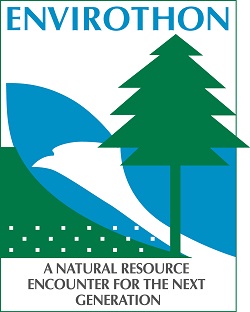 W
WNCF-Envirothon is an annual environmentally themed academic competition for high school aged students organized by the NCF-Envirothon a program of the National Conservation Foundation. The competition is held by the United States and Canada on a regional, state, and bi-national level. Envirothon combines in-class and hands-on environmental education in a competition setting which involves a problem-solving presentation as well as written field tests. The competition tests students on five core subjects- aquatic ecology, forestry, soils and land use, wildlife- along with a fifth annually-changing subtopic which focuses on relevant environmental issues. Currently, roughly 500,000 students from forty-five U.S. states and nine Canadian provinces/territories participate in the competition.
 W
WThe Global Security Challenge runs international business plan competitions to find and select the most promising security technology startups in the world. The GSC holds regional selection events and a Security Summit in London to bring together innovators with government, industry and investors. The GSC belongs to InnoCentive, which acquired the original owner OmniCompete in 2012. OmniCompete also launched the Energy Storage Challenge in 2010.
 W
WThe Google Science Fair was a worldwide online science competition sponsored by Google, Lego, Virgin Galactic, National Geographic and Scientific American. It was an annual event spanning the years 2011 through 2018.
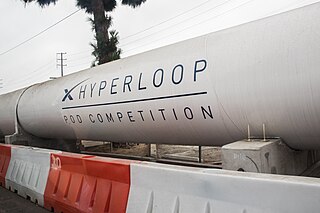 W
WThe Hyperloop Pod Competition was an annual competition sponsored by SpaceX from 2015–2019 in which a number of student and non-student teams participate to design—and for some, build—a subscale prototype transport vehicle in order to demonstrate technical feasibility of various aspects of the Hyperloop concept. The competitions have been open to participants globally, although all competitions and judging has occurred in the United States of America.
 W
WThe KSN, previously OSN (Indonesian: Olimpiade Sains Nasional) is a science competition for Indonesian students held by the Indonesian Ministry of Education and Culture. This competition consists some competitions for elementary school (SD) students, junior high school (SMP) students, and senior high school (SMA) students.
 W
WThe NASA Human Exploration Rover Challenge, prior to 2014 referred to as the Great Moonbuggy Race, is an annual competition for high school and college students to design, build, and race human-powered, collapsible vehicles over simulated lunar/Martian terrain. NASA sponsors the competition, first held in 1994, and, since 1996, the U.S. Space & Rocket Center hosts.
 W
WNational Science Talent Contest or NSTC is an extension of the National Physics Talent Contest launched by PAEC in 1995 on the directive of the then President of Pakistan. The purpose of NSTC is to inspire the youth of the Nation to opt for careers in science, and mathematics and to prepare young students for participation in International Science Olympiads in Physics, Biology, Chemistry and Mathematics.
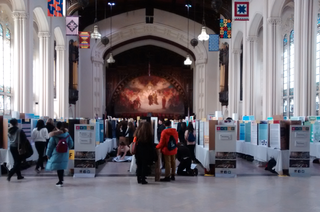 W
WThe New York City Science and Engineering Fair (NYCSEF) is an annual science fair contested by around 700 high school students from Queens, Manhattan, Bronx, Brooklyn and Staten Island, making it the largest high school research competition in New York City. About 150 participants advance to the finals round. Awards include scholarships to study at CUNY's City College of New York and Hunter College, while the finalists win a trip to represent New York City at the International Science and Engineering Fair. Winners represent Team NYC at ISEF and compete for $4,000,000 in awards. The event is sponsored by the New York City Department of Education (NYCDOE) and the City University of New York (CUNY) Office of Academic Affairs. Other science fairs include the Google Science Fair, Siemens Science Fair, Intel STS and Junior Science and Humanities Symposium.
 W
WPennsylvania Junior Academy of Science (PJAS) is a statewide organization in Pennsylvania founded in 1934. The organization is open to all students of participating schools in grades 7 through 12. Students can participate in both a regional meet as well as a state meet at Penn State University. 1st Award winners from their regional meets are invited to compete at the state meet where they are given the opportunity present their projects again to win a wide range of awards like $8,000 Penn State scholarships, and other special awards.
 W
WThe POISK Centre is an educational and research organization founded in 2004 at Saint Petersburg State University (Russia). Its primary aim is to encourage secondary school students and university students to do independent scientific research.
 W
WRealise the Dream is a national event which celebrates and rewards students who have undertaken a piece of excellent science research or technology development. The event is organised by The Royal Society of New Zealand and Genesis Energy is the principal sponsor. It is a 7-day event which begins in Auckland and the participants travel down the North Island visiting science organisations along the way. The event culminates in an award ceremony usually held at Government House.
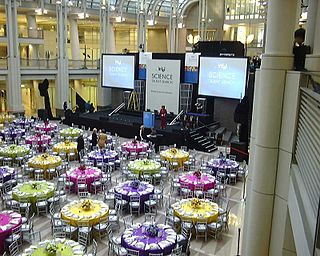 W
WThe Regeneron Science Talent Search, known for its first 57 years as the Westinghouse Science Talent Search, and then as the Intel Science Talent Search from 1998 through 2016, is a research-based science competition in the United States for high school seniors. It has been referred to as "the nation's oldest and most prestigious" science competition. In his speech at the dinner honoring the 1991 Winners, President George H. W. Bush called the competition the "Super Bowl of science."
 W
WScience Olympiad is an American team competition in which students compete in 23 events pertaining to various scientific disciplines, including earth science, biology, chemistry, physics, and engineering. Over 7,800 middle school and high school teams from 50 U.S. states compete each year. U.S. territories do not compete; however, since 2012 high school teams from Japan have competed at the national tournament as unranked guests.
 W
WSensUs is the annual international student competition on molecular biosensors for health. Multidisciplinary student teams from universities worldwide design and build biosensing systems, and demonstrate their prototypes and business models during a final public contest event. The competition stimulates education and innovation in the field of biosensing, with a worldwide scope. The long term aim is to improve the quality of life of patients.
 W
WThe South Carolina Science Olympiad Competition, often abbreviated as SCSO, is an annual Science Olympiad competition comprising middle school and high school teams across South Carolina. The competition was first held in the C Division in 1985, with the inaugural state champions being Irmo High School from Irmo. Bell Street Middle School from Clinton won the first B Division state championship a year later. The winners of the tournament represent South Carolina at the Science Olympiad National Tournament, held in May at various universities across the nation.
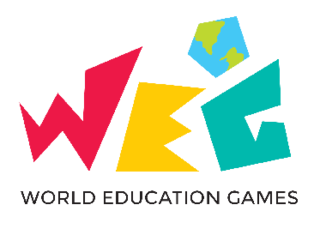 W
WThe World Education Games is a global online event for all schools and students around the world and is held semi annually during the month of October. It is the expanded format of what was once known as World Maths Day but it now includes World Literacy Day and World Science Day too. It is organized by the 3PLearning and sponsored by Microsoft, UNICEF, 3P Learning and MACQUARIE. The World Maths Day holds the 'Guinness World Record' for the Largest Online Maths Competition in 2010. Its Global Ambassador is 'Scott Flansburg' aka the Human Calculator.
 W
WThe World Solar Challenge (WSC), or the Bridgestone World Solar Challenge since 2013, tied to the sponsorship of Bridgestone Corporation.
 W
WThe BT Young Scientist and Technology Exhibition, commonly called the Young Scientist Exhibition, is an Irish annual school students' science competition that has been held in the Royal Dublin Society, Dublin, Ireland, every January since the competition was founded by Fr. Tom Burke & Dr. Tony Scott in 1965.